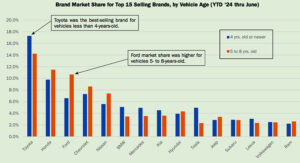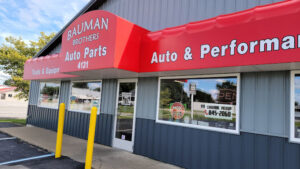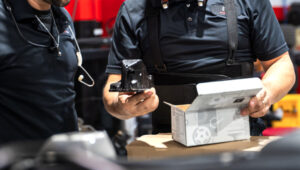“Our projection in this current economy is we might even outperform our usual historic performance,” says AASA’s Paul McCarthy
Research Triangle Park, N.C.—The word “recession” has been popping up in headlines recently, and while the automotive aftermarket has proved resilient in past economic downturns with more than 3 percent growth during those years, Aftermarket Matters asked the Automotive Aftermarket Suppliers Association (AASA) recently if the industry will need to navigate potential shallow waters ahead.
The following conversation “snapshot” took place during an AASA media briefing on May 25. Content has been edited for clarity.
Aftermarket Matters: How different would a recession look today compared to previous ones, most recently in 2007-2009, and what challenges would it present to the aftermarket in light of high gas prices, inflation, supply chain challenges and more?
Paul McCarthy, AASA president and CEO: “We’ve had a number of economists speak to our members — and we’ve heard it through the industry — and they seem to be less concerned than some of us broader folks. They keep pointing to the fact that the job market is incredibly strong, income growth is strong and consumers still have very good [bank] balances. But that said, recessions are funny things. We’re not sure it’s going to happen and it’s very hard to predict — but we do outperform most of the sectors.

“From a manufacturer’s standpoint, that’s one of the reasons it’s wonderful to have an aftermarket business. There’s a perception that we’re countercyclical in the aftermarket, but we’re not really — we did the analysis many times over many years and we’re actually ‘weakly cyclical.’ We feel it when the economy gets worse — and we feel it in a positive way when the economy gets better — but we’re hit much less than others.
“Our projection in this current [economy] is we might even outperform our usual historic performance. The reason for that is the issue of substitute goods. If we look a recession, we’re certainly not going to be getting more new vehicles coming into the fleet. The typical drive [for vehicle owners] is to make sure they can make their vehicles last a little bit longer until they feel more positive about the economy.
“We think that the necessity of — ‘I need my vehicle, I need to repair it’ — and given the age and size of the fleet, and lack of substitute goods may be even more positive for us than any potential recession. Generally, when I speak with industry leaders, they’re not fearful of a recession, but they certainly need to be ready, just as we’ve needed to be ready for so many other disruptors.”

Chris Gardner, AASA senior vice president, Operations: “All those points are spot on, especially with the parc being so large with such a long tail. The only concern that I think we hear is that discretionary spend on unperformed maintenance could take a hit if gas prices and inflation stay high.











Comments are closed.